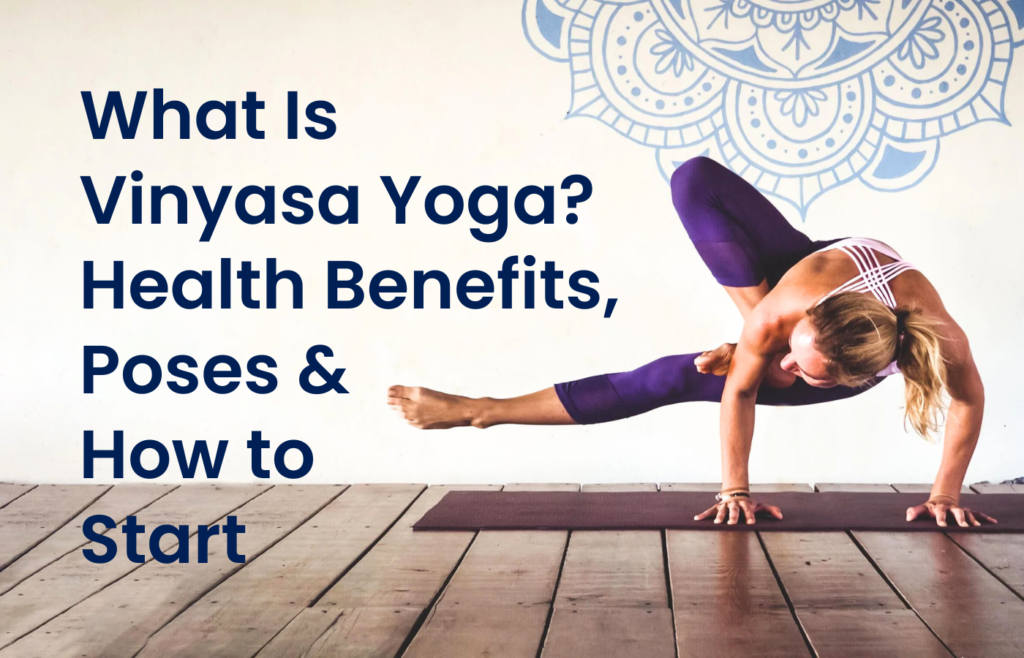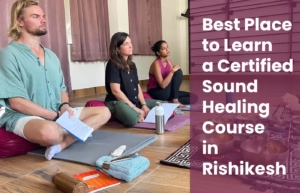
If you’ve seen a yoga class where people move gracefully from one posture to another like a flowing dance, you’ve likely witnessed Vinyasa Yoga in action. It’s one of the most popular styles of yoga today – a combination of breath, movement, and mindfulness that leaves you feeling strong, flexible, and centered.
What Is Vinyasa Yoga?
The term “Vinyasa” is derived from Sanskrit, meaning “to place in a special way.” In practice, it refers to a seamless sequence of postures that are linked together with the breath. Each movement is paired with either an inhale or an exhale, creating a smooth and meditative flow.
Unlike traditional yoga styles that hold poses for long durations, Vinyasa keeps your body in motion, which brings a dynamic energy to the practice. It’s sometimes called “flow yoga” for this reason.
How Vinyasa Yoga Works
A typical Vinyasa class may include:
-
- A short warm-up to open the body
- Several rounds of Sun Salutations (Surya Namaskar)
- A sequence of standing, balancing, and seated poses
- Cool-down stretches and Savasana (final relaxation)
These sessions range from gentle beginner flows to power-packed workouts. The continuous movement builds heat in the body and encourages a deep connection between breath and movement.
10 Amazing Health Benefits of Vinyasa Yoga
1. Strengthens Muscles
Vinyasa uses your body weight to develop strength – especially in the core, arms, legs, and back.
2. Increases Flexibility
The flowing sequences help open tight muscles and joints, making your body more limber and mobile over time.
3. Improves Heart Health
The rhythm of the practice offers a gentle cardiovascular workout that boosts circulation and heart function.
4. Reduces Stress and Anxiety
Coordinating breath and movement activates the parasympathetic nervous system, leaving you feeling calm and balanced.
5. Supports Weight Loss
A moderate-intensity Vinyasa class can burn significant calories and improve metabolism – ideal for those on a fitness or weight-loss journey.
6. Promotes Better Sleep
The stress relief and full-body engagement of Vinyasa help you fall asleep faster and sleep deeper.
7. Boosts Lung Capacity
Focused breathing (called Ujjayi) increases lung strength and brings more oxygen to the body.
8. Tones the Body
With repeated flows and active muscles, Vinyasa tones your arms, abs, glutes, and thighs effectively.
9. Enhances Mobility
Dynamic transitions improve joint flexibility and movement range, great for injury prevention.
10. Connects Mind, Body, and Breath
Ultimately, Vinyasa is a moving meditation that helps you feel more grounded, present, and self-aware.
Common Poses in a Vinyasa Yoga Class
Here are some essential asanas you’ll encounter:
-
- Downward-Facing Dog (Adho Mukha Svanasana)
- Chaturanga Dandasana (Low Push-Up)
- Upward-Facing Dog (Urdhva Mukha Svanasana)
- Warrior I and II (Virabhadrasana)
- Chair Pose (Utkatasana)
- Tree Pose (Vrikshasana)
- Child’s Pose (Balasana)
- Cobra Pose (Bhujangasana)
- Mountain Pose (Tadasana)
- Corpse Pose (Savasana)
These poses are linked together with the breath to form a sequence that feels fluid and energizing.
Beginner Tips to Start Your Vinyasa Journey
If you’re new to yoga, here’s how to begin Vinyasa safely:
Start with Beginner-Friendly Classes
Look for labels like “Slow Flow” or “Beginner Vinyasa.” These focus more on alignment and breath awareness.
Focus on Breath, Not Perfection
Don’t worry about looking perfect – instead, tune into your breath and body awareness.
Use Props and Modifications
Blocks, straps, or cushions can make the practice more accessible and supportive.
Practice Regularly
Start with 20–30 minute sessions 3–4 times a week and gradually build up as your body adapts.
Learn from Trusted Sources
Whether it’s a YouTube teacher or a top yoga class in Rishikesh, learning from certified instructors can help you develop a strong and safe foundation.
Why Try Vinyasa Yoga in India’s Yoga Capital?
Rishikesh is the yoga capital not just in name, but in spirit. Nestled in the foothills of the Himalayas and along the Ganges River, it’s home to hundreds of traditional ashrams and top yoga classes in Rishikesh.
Many international students come here to study Vinyasa Yoga through Yoga Alliance-certified teacher training programs, short retreats, or drop-in classes. If you’re seeking depth, community, and authentic teaching, Rishikesh is the perfect place to start.
Conclusion
Vinyasa Yoga offers an ideal blend of movement, mindfulness, and physical strength. Whether your goal is to tone your body, quiet your mind, or improve flexibility, Vinyasa adapts to your needs and evolves with your practice. You don’t need to be flexible or fit to begin, just start where you are and let the flow guide you. Take your first step with a local class, an online video, or by joining a top yoga centre in Rishikesh and feel the transformation unfold.







